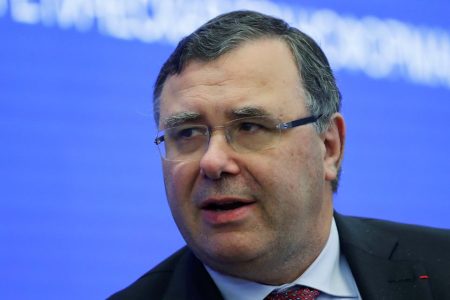 2 December 2011, Sweetcrude, ALGIERS – Algeria’s natural gas sector has witnessed rapid expansion on the heels of increased production. Recent successes are aided by international partnerships and technological advances, and the country is, at the same time, looking forward to solidifying its standing as a regional transit hub for natural gas, Global Arab Network reports according to OBG.
2 December 2011, Sweetcrude, ALGIERS – Algeria’s natural gas sector has witnessed rapid expansion on the heels of increased production. Recent successes are aided by international partnerships and technological advances, and the country is, at the same time, looking forward to solidifying its standing as a regional transit hub for natural gas, Global Arab Network reports according to OBG.
With the October 10 announcement that Irish oil and gas firm, Petroceltic International (PCI), had more than doubled gas production rates from its south-eastern Algerian interests, the company saw shares rise by 12.5%. For its part, the country’s state-owned gas company, Sonatrach, which partners with PCI on this project, also had good reason to celebrate.
PCI said fracture stimulation of the AT-8 well on the Ain Tsila discovery had boosted the pre-fracture flow rates to 38.6m standard cu feet of gas per day (mmscf/d). Previously, pre-fracture gas flow rates at AT-8 were 15.4 mmscf/d.
Fracture stimulation – also known as fracking – involves relatively new technologies such as hydraulic fracturing and horizontal drilling, in which liquid is pumped into rock formations at high pressure to open spaces between the rock, allowing gas or oil to flow out more readily.
According to Oil and Gas Journal, as of January 2009 Algeria already had 159 trillion cu ft (tcf )of proven natural gas reserves, making it the world’s eighth-largest holder of the substance.
Figures from the BP Statistical Review of World Energy 2010 also show the country with 2.4% of the world’s total proven gas reserves and a reserve-to-production ratio of 55.3 years. Meanwhile, the US Energy Information Administration puts Algeria’s 2010 natural gas production at 3.007 tcf and consumption at 1.05 tcf, impressive export figures.
PCI’s success comes half a year after Algeria announced it was seeking partners to develop its huge shale reserves. The OPEC member country is estimated to have up to 1000trn cu ft (tcf) of natural gas trapped in shale rock more than 1000 metres below the surface.
In March, Youcef Yousfi, the minister of energy, told a conference of oil and gas sector players in Houston, “We are interested in growing unconventional gas reserves. The preliminary results of our evaluation of shale gas potential indicate that the potential is at least comparable to the major plays known in the US.”
However, with no experience in developing shale gas, the minister said Algeria was looking to partner with international companies to develop its reserves.
“The development of the unconventional hydrocarbons will be a new experience that we will be willing to share with companies that have demonstrated their know-how in this field,” Yousfi said.
Sonatrach dominates the country’s natural gas production and wholesale distribution, however foreign investment in the sector continues to increase. Foreign gas producers such as PCI, BP, Statoil, Total, BHP-Billiton, Eni and Repsol have entered into partnership agreements with Sonatrach.
Meanwhile, the country’s importance as a transit hub for West African gas and its access to the Mediterranean and European markets will also be broadened when the much-anticipated Trans-Saharan Pipeline comes online.
With a launch date now set for 2015, the 2800-mile, $20bn pipeline (a joint project of Sonatrach and the Nigerian National Petroleum Corporation) will pump natural gas from Warri, Nigeria to Algeria’s Hassi R’Mel natural gas hub and pipeline. The ultimate aim is to bring Nigerian natural gas to European markets.
Though the pipeline has been planned for years, it has seen many stumbling blocks and implementation has been repeatedly delayed, due in large part to the challenging technical and financial requirements of the project. But on July 12, speaking at the 25th Summit of the Heads of State and Government Orientation Committee of the New Partnership for African Development (NEPAD), Nigerian president Goodluck Jonathan said Nigeria would continue its partnership with Algeria to develop the pipeline.
With boosted production, advanced technology transfer and a regional reach in sight, Algeria’s ratings as a natural gas producer could soon rise ever higher. (OBG)



